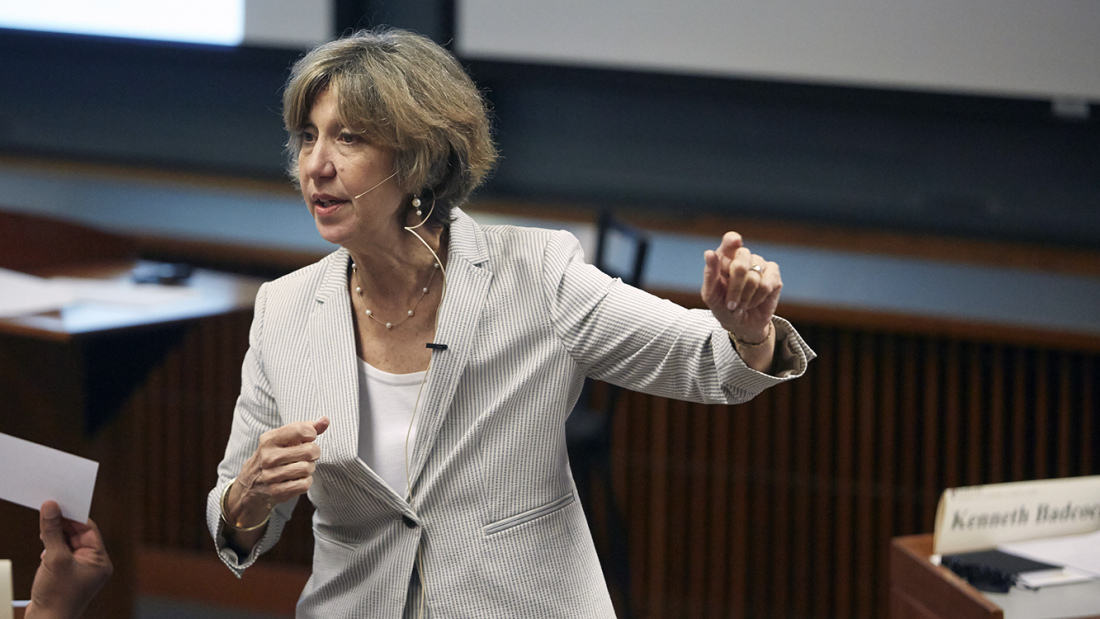Guiding Generations of College Presidents

The role of college or university president has always been important, but in recent years, with demographic and financial challenges mounting, and student expectations shifting dramatically, it has become downright critical. The appointment of a new president is “a leap of faith,” says Professor Judy McLaughlin — for the incoming president as much as for the institution bringing that person along.
There is no one better to understand that leap of faith — or to help leaders navigate it — than McLaughlin. As the founding chair of the Harvard Seminar for New Presidents, she has helped guide more than 1,300 college and university presidents since the program began in 1990.
For 30 years, Judy McLaughlin has helped new college leaders reflect and prepare for their ever-more significant roles.
Over the course of those 30 years, incoming and new college presidents have convened each summer on Appian Way, forming a collegial community — based on a unique bond — that crosses geographic and institutional boundaries. Leaders come from research universities and community colleges, from military institutions to faith-affiliated colleges, joining in a shared exploration of purpose, values, and practical leadership strategies. These leaders, by definition peerless at each of their institutions, find a community of peers at HGSE.
“Presidents begin their tenure with energy and eagerness to take on the new challenges of their position,” McLaughlin says. When she meets them at the Harvard Seminar, “their excitement for the possibilities and prospects ahead are palpable. But they also have understandable anxiety about their presidencies. These are really hard jobs.”
McLaughlin and the program’s other faculty — subject matter experts and current and former college presidents — focus on giving the participants the information, counsel and mentorship they need to be effective. “We are helping them frame questions for themselves and their institutions,” she says. Topics include substantive issues of financial management, fundraising, team building, planning, communications, and board governance. But conversations also range across intangibles — questions of how to listen and learn, how to be attentive to institutional culture, how to navigate different constituencies, how to understand a job that becomes a life, and the pressures that can bring, not just for the leader, but for the leader’s family.
“Today, many more institutions are precarious than ever before,” says McLaughlin. “And, even those that are relatively secure are experiencing serious questions about their financial model, divisive politics, and a crisis in faith from external audiences. All of this makes it more difficult for presidents to succeed and the consequences more extreme if they fail.
“I feel so privileged to work with these presidents when they are new to their positions. They share their thrill at being in their new role, and they are open about their questions and concerns. For a teacher, it’s the very best group one could possibly imagine; you've never seen such a group of eager learners in all your life.” – Bari Walsh
Learn More and Connect
Explore HGSE's College and University Presidential Leadership Programs, as well as the entire portfolio of professional development opportunities for higher education professionals.
Join the Collaborative on Academic Careers in Higher Education (COACHE), a research-practice partnership and network of peer institutions dedicated to improving outcomes in faculty recruitment, development, and retention.
